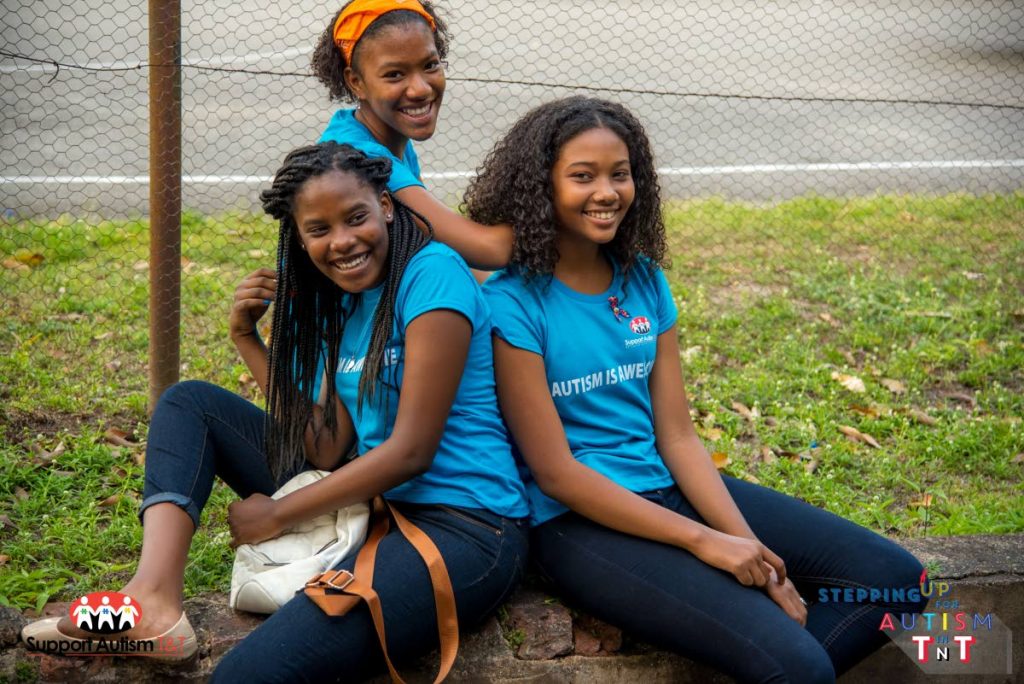Changing society’s negative attitude towards special needs

DR RADICA MAHASE
“WHEN you are a parent of a child with special needs like me, you have to really have patience with people. You have to learn to ignore the stares and comments people make when you’re out in public with your child.
“I went through phases, first trying to educate people, then cussing up people and now am in the phase of just ignoring them because my focus is on my child, not on what society thinks.”
Too often we hear about the negative experiences that parents like Justine, above, face when out in public spaces with their special-needs children. Parents have complained that when they are in public spaces their children are subjected to stares and nasty comments. Some note that parents keep their “normal” children away from the special-needs child and in some cases, they act as if the special-needs child will attack them.
Sadly, this is common in TT and it extends beyond the stares and comments to lack of respect for wheelchair users; an education system that is not inclusive of children with different learning styles; a labour market which does not consider special needs people for employment opportunities; and lack of programmes, activities and events for socialisation.
This general negative attitude towards people with special needs is prevalent for many reasons. We can blame it on a lack of education (at home and in schools) or on traditional mindsets where society believes that people with special needs cannot contribute or do anything worthwhile and therefore, we should not waste money and resources on them. Or we can excuse this behaviour by saying, people just don’t know about special needs, especially hidden disabilities such as autism which is not easily noticeable.
However, it is more important that we find ways to change society’s negative attitude, behaviour and perception of people with special needs. How do we do this?

-
First, by encouraging people with special needs to be active members of our society. As a country we need to facilitate their participation in all aspects of life. We need to create options for them to get involved at an economic, social and political level. For example, if more people with special needs had access to employment opportunities then this group would be more visible in society.
Also, TT needs to effectively implement legislation and policies pertaining to the special needs population. The Inclusive Education Policy, amongst others, has to be effectively implemented if people with special needs are to have some visibility in this country. Legislation is one way of “forcing” a society to acknowledge and include people with special needs and implementation will help to bring tangible changes.
It is also important that we encourage inclusion in schools from as young as pre-school. In the same way we teach children manners, honesty and love, we need to teach them to accept those who are “different.” This is why an inclusive education setting is so important; if friendships are nurtured from a young age between those with and without special needs then there is more understanding, acceptance and inclusion.
Additionally, we need to end the stigma against those with special needs by changing the way we refer to them. Terms that were used in the 19th century are still used in TT today – we refer to people with special needs as “handicapped” and “retarded” or “disabled.” We really need to recognise the people first, not the person’s disability – so we refer to a “child with autism” or “people with special needs” and “differently abled.”
We also need to stop identifying the disability before we actually identify the person. A child with autism is a child first and foremost but we tend to focus on the autism more than anything. We have to recognise the individual before his or her special needs. In this way we can focus on what the individual is actually capable of rather than what he/she cannot do. We need to get rid of the ideas of people being “normal” as opposed to those being “abnormal.”
If we understand that everyone has the ability to learn, to develop, to contribute then we can change society’s negative attitude towards people with special needs. In the words of Robert M Hensel, “There is no greater disability in society, than the inability to see a person as more.”
Dr Radica Mahase is the founder/director of Support Autism T&T


Comments
"Changing society’s negative attitude towards special needs"